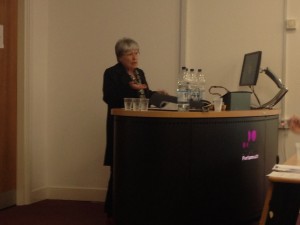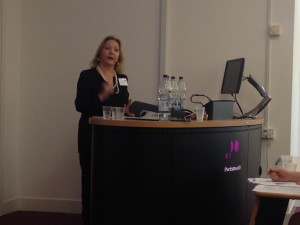Deadline for paper submissions: Tuesday 30 June 2015.
The study of France’s policy in Africa has frequently focused on the interactions with its (former) Empire, the “pré-carré”. This has given rise to a narrative of uniqueness and exceptionality, whilst simultaneously contributing to critiques of France as a “neo-colonial” actor in Africa. However, a growing body of new scholarly research suggest that the time is now ripe for a reassessment of this restrictive vision.
The progressive opening up of archives in France and elsewhere, along with the expansion of global and connected histories of empire and decolonisation, has shed new light on the France’s presence in Africa in colonial and post-independence era. Despite taking as their starting point the French traditional zone of influence, many recently published works on French decolonisation and the politics of cooperation explore the regional, continental and global dynamics that shaped French policy in Africa. There are also a growing number of publications, doctoral theses and on-going research projects that break free of the “Francophone” framework entirely. Some of these complete previous political science case studies of French policy in South Africa or Nigeria. Others go further still, uncovering largely unknown relations between France and the (former) British, Belgian and Portuguese imperial spaces in Africa. Adopting a transnational perspective or a “politique par le bas” approach has enabled the study of circuits, networks (formal and informal) and the movement of ideas and people between France and the spaces outside of its traditional sphere of African influence. This global perspective, in turn, has also brought to light triangular connections between France, Francophone and non-Francophone Africa.
It is the aim of this study day, which will take place at Sciences Po, Paris, Centre d’Histoire on Friday 20 November 2015, to build upon this emergent field bringing together scholars working on all aspects of French engagement with Africa “hors champs” both in colonial and post-colonial period. Researchers from different disciplines are invited to submit proposals, either in French or in English, for papers dealing with all aspects of France’s interactions outside of its traditional sphere of African influence. Papers can explore, but are not restricted to, the following themes:
- The official French presence in regions of Africa outside of the “pré carré”, including the different dimensions of these policies (political, military, strategic, cultural, economic) and how these relations operated at different levels (international, continental, regional, bilateral).
- The role of non-governmental French actors, including official and non-official networks.
- Cultural contacts and circulation and diffusion of ideas
- Migrations between France, its (former) African colonies, and other regions of Africa, including the impetus behind these movements and their impact.
- French interpretations of “non-Francophone” Africa.
- The role of Africans in French engagement with Africa “hors champs”.
Paper proposals of 250-300 words should be sent to Anna Konieczna (anna.konieczna@sciencespo.fr) and Joanna Warson (joanna.warson@port.ac.uk) by Tuesday 30 June 2015.
Organisers: Dr Anna Konieczna (Sciences Po), Malcolm Théoleyre (Centre d’Histoire, Sciences Po), Dr Joanna Warson (University of Portsmouth).


